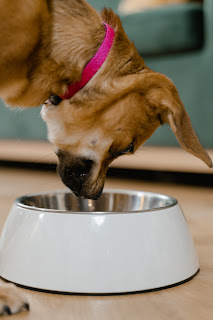Ensuring that your pet receives the highest quality nutrition is a top priority for any responsible pet owner. However, the pet food market is flooded with options, and not all ingredients are created equal. Some commercial pet foods contain fillers and additives that offer little to no nutritional value and can even be detrimental to your pet's health. In this comprehensive guide, we'll delve into the impact of these common fillers and additives, and provide valuable insights on what to avoid when choosing the best diet for your furry friend.
Keywords: Pet food fillers, Harmful additives in pet food
Fillers and additives are ingredients used in pet food formulations to provide bulk, enhance texture, or extend shelf life. While not all fillers and additives are harmful, some offer little nutritional benefit and can even lead to health issues in the long run. Recognizing and avoiding these substances is crucial for the well-being of your pet.
1. Corn, Wheat, and Soy
Keywords: Pet food with corn, Wheat in pet food, Soy-based pet food
These are among the most common fillers found in commercial pet food. While they are inexpensive and can serve as a source of carbohydrates, they offer limited nutritional value for pets, especially in excessive amounts. Additionally, pets with allergies or sensitivities to these grains may experience digestive issues or skin problems.
2. Artificial Colors and Flavors
Keywords: Artificial colors in pet food, Synthetic flavors for pets
Artificial colors and flavors are added to pet food to make it more visually appealing and palatable to humans. However, these additives serve no nutritional purpose for pets and can potentially lead to allergic reactions or hyperactivity. Opt for natural, whole-food ingredients in your pet's diet instead.
3. Meat By-Products and Meal
Keywords: Meat by-products in pet food, Animal meal in pet food
Meat by-products and meals are derived from leftover animal parts not used for human consumption, such as organs, bones, and sometimes even feathers. While they can provide protein, the quality and digestibility of these ingredients can vary widely. Opt for pet foods that list specific, named meat sources as the primary protein.
4. Artificial Preservatives
Keywords: Synthetic preservatives in pet food, Harmful pet food preservatives
Common synthetic preservatives in pet food include BHA, BHT, and ethoxyquin. While they help extend shelf life, they have been associated with potential health risks, including allergies and even cancer in some cases. Look for pet foods preserved with natural alternatives like tocopherols (vitamin E).
5. Carrageenan
Keywords: Harmful effects of carrageenan in pet food, Pet food with carrageenan
Carrageenan is a thickening agent often used in wet pet foods. It has been linked to digestive issues and inflammation in some pets. Opt for foods without carrageenan, or choose options with natural thickeners like agar-agar or guar gum.
6. Excessive Salt and Sugar
Keywords: High salt pet food, Sugary pet food ingredients
Too much salt and sugar in a pet's diet can lead to a range of health issues, including obesity, diabetes, and heart problems. It's important to choose pet foods with minimal added salt and absolutely no added sugars.
Also read: Grain Free vs Grain Inclusive Dog food: What's Best for Your Pet?
Making Informed Choices for Your Pet's Health
Keywords: Choosing healthy pet food, Best pet food ingredients
When selecting pet food, it's essential to read labels carefully and prioritize whole, natural ingredients. Look for specific, named protein sources, whole grains (or grain-free options if your pet has specific dietary needs), and natural preservatives. Consulting with your veterinarian can also provide valuable guidance in choosing the best diet for your pet's individual needs.
Conclusion: Nourishing Your Pet with Care
Keywords: Healthy pet nutrition, Choosing the best pet food
Providing your pet with a balanced, nutritious diet is one of the most significant contributions you can make to their overall health and well-being. By avoiding common fillers and additives, and opting for high-quality, whole-food ingredients, you're taking proactive steps in ensuring your pet thrives. Remember, a well-nourished pet is a happy and vibrant companion.
In conclusion, being mindful of the ingredients in your pet's food is a crucial aspect of responsible pet ownership. By avoiding harmful fillers and additives, you're prioritizing your pet's health and well-being. Opting for high-quality, natural ingredients sets the foundation for a long, happy, and healthy life for your cherished companion.




